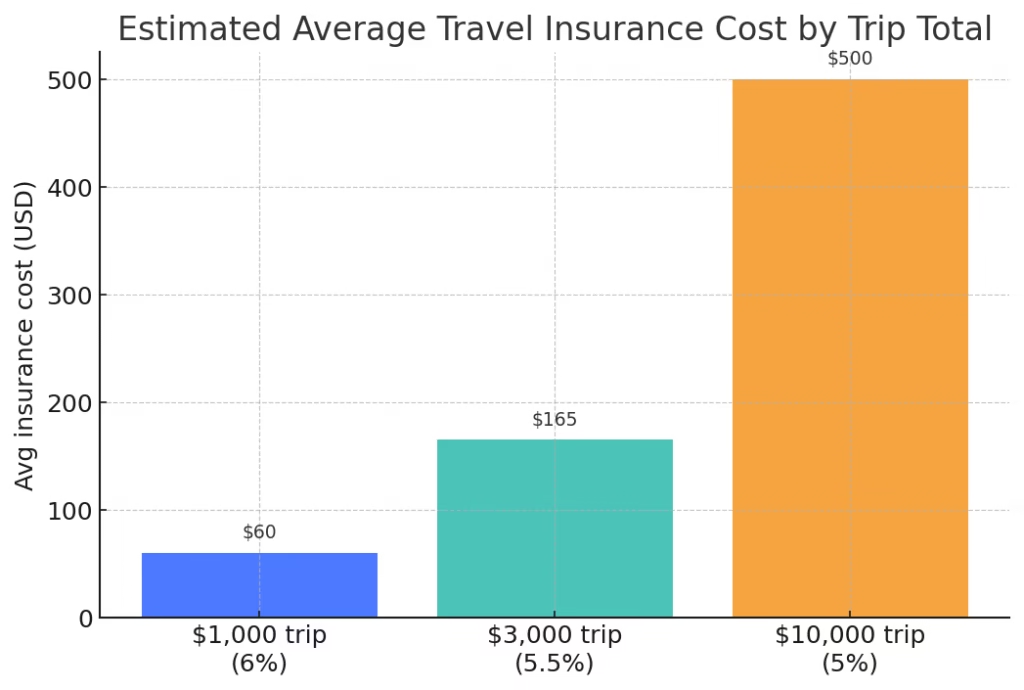
When planning your next trip, there is always that moment when you stop and ask yourself do I need travel insurance and is travel insurance worth it? For many travelers, this question pops up right before clicking the “confirm booking” button. Travel is meant to be fun, exciting, and memorable, but it also comes with uncertainty. Missed flights, lost luggage, sudden illness, or even unexpected global events can derail your carefully laid plans. This is where travel insurance steps in. But the real debate is whether travel insurance is worth it or just another extra cost pushed by airlines and booking sites.
This complete guide is written with real experiences, professional analysis, and practical examples so that by the end, you will know exactly when you should buy travel insurance, when you can consider skipping it, and how to choose the right policy without wasting money.
What Travel Insurance Actually Covers
At its core, travel insurance is a financial safety net. It protects you when something goes wrong before or during your trip. A standard policy often covers:
Trip cancellations and interruptions: If you need to cancel because of illness, family emergencies, or airline bankruptcy, you can be reimbursed for nonrefundable costs.
Medical emergencies abroad: Your regular health insurance may not cover overseas treatments. Travel insurance ensures that unexpected hospital bills do not become overwhelming.
Lost luggage and stolen items: Imagine landing in London and realizing your suitcase never left New York. Insurance covers replacements and essentials.
Flight delays and missed connections: Many policies will compensate for meals, hotels, and rebooking fees.
Why Travelers Skip Travel Insurance
Many people think they do not need travel insurance because they are young, healthy, or confident nothing will happen. Others believe it is just a marketing tactic from booking platforms.
The truth is that in most cases you might not need to file a claim. But on the rare occasion you do, the protection can be life-saving financially. It is like a seatbelt, unnecessary until the one time it saves you from disaster.
Do I Need Travel Insurance for Every Trip
The short answer is no. It depends on your situation. Let’s analyze key factors.
Domestic versus international trips
If you are traveling inside your country and already have health coverage, you may not need extra insurance. For example, in the United States Medicare does not cover treatment abroad, so international travelers should strongly consider a policy.
Trip cost
For a short weekend getaway, insurance may not make sense. But if you are spending $5,000 on a family vacation to Europe, protecting that investment is smart.
Destination risks
Traveling to developed countries like Canada, Singapore, or Australia means excellent healthcare but high costs for nonresidents. Visiting remote or unstable regions increases risks even more.
Personal health and age
If you have existing medical conditions, are traveling with children, or are older, the risk is higher. Younger, healthy solo travelers might sometimes skip it, but that is a gamble.
Quiz
Question: If your checked bag worth $2,000 goes missing, who pays for replacements?
Option A: The airline
Option B: Your credit card company
Option C: Travel insurance
Answer: Airlines usually pay very little, sometimes only a few hundred dollars. Some premium credit cards offer limited coverage, but not enough. Travel insurance usually covers full replacement costs. The correct answer is Option C.

Is Travel Insurance Worth It in Real Life
Let us look at two real scenarios.
Sarah from Toronto booked her dream trip to Thailand. A week before departure, she broke her ankle and had to cancel. Without insurance she would have lost $3,200 in prepaid costs. Her travel insurance reimbursed almost the entire amount.
On the other hand, John from Sydney skipped insurance while visiting Spain. He suffered appendicitis and required emergency surgery. The bill was over $12,000, which he had to pay himself.
These stories prove one thing: travel insurance seems unnecessary until the moment you desperately wish you had it.
Types of Travel Insurance You Should Know
To make sense of your options, here are the main categories:
Comprehensive travel insurance covers cancellations, medical care, luggage, and delays.
Medical-only travel insurance focuses only on emergency healthcare while abroad.
Trip cancellation insurance protects prepaid trip costs.
Annual multi-trip insurance is best for frequent travelers who want coverage all year.
Helpful Resources
Authorities like the U.S. Department of State Travel and the World Health Organization provide updated information on travel safety and health advisories.
We have already seen the basics of what travel insurance covers, why many people hesitate to buy it, and some real-world examples that prove its importance. Now let’s go deeper into the practical side. How do you calculate whether travel insurance is worth it for your specific trip? What myths should you avoid believing? And how do different trip styles change the equation?
How to Decide if Travel Insurance is Worth It for Your Trip
The first step is to compare the potential risk with the cost of the policy. Travel insurance usually costs between 4 to 10 percent of your total trip cost. That means if you are spending $5,000, your insurance could cost around $200 to $400.
Now ask yourself: if something goes wrong, can you afford to lose that $5,000? For some people the answer is yes, but for many travelers it is a hard no. This is the key point: travel insurance is not about guaranteeing something will go wrong. It is about protecting yourself from losing thousands if it does.
Example: A family from the United States traveling to Europe for three weeks spends $7,500 in bookings. Their insurance costs $300. During the trip, one child develops a severe stomach infection and requires hospital care in Paris. The medical bill comes to $4,000. The $300 policy suddenly feels like the smartest decision they made.

Common Myths About Travel Insurance
There are many misconceptions that keep travelers from buying insurance. Let’s clear up the most popular ones.
Myth 1: My credit card covers me fully
Some credit cards offer limited travel benefits like trip cancellation or rental car protection, but very few cover full overseas medical expenses. Always read the fine print.
Myth 2: Airlines or hotels will refund me if something goes wrong
In most cases, tickets and hotel bookings are nonrefundable or only partially refundable. Travel insurance fills that gap.
Myth 3: I am young and healthy, so I don’t need it
Accidents do not discriminate by age. From food poisoning to lost passports, unexpected problems can happen to anyone.
Myth 4: It is too expensive
Most people assume insurance will cost hundreds of dollars. In reality, many comprehensive plans cost less than a fancy dinner in a European city.
One of the biggest reasons travelers regret skipping coverage is medical emergencies abroad. Hospital bills in the US, UK, or Singapore can wipe out savings in days. If you want to see how major providers work in real life, check out our guide on the best health insurance companies in the USA, which shows why health coverage matters no matter where you are.
Travel Styles and How They Impact the Need for Insurance
Not all trips are equal. The kind of travel you are doing changes how valuable insurance becomes.
Luxury and family vacations
These are often expensive with prepaid bookings. Canceling or changing plans without insurance could mean losing thousands. For families, medical coverage is also essential since children are more prone to sudden illnesses.
Adventure travel
If you are planning skiing in Canada, trekking in Nepal, or scuba diving in Australia, medical risks are higher. Many adventure trips even require proof of insurance.
Business travel
For work-related trips, cancellations or delays can mean missed opportunities. Insurance can cover rebooking and lost expenses.
Budget backpacking
If your trip is low cost, insurance may feel unnecessary. But medical-only coverage is still wise because even a minor accident abroad can become financially devastating.
Quick Travel Quiz for You
Question: You miss your connecting flight in Singapore due to a delay in Sydney. Your rebooked ticket costs $600 plus an overnight hotel stay of $150. Who pays for this?
Option A: The airline
Option B: You pay it yourself
Option C: Travel insurance
Answer: Airlines only cover certain types of delays and usually offer vouchers rather than full reimbursement. Without insurance, you often pay from your pocket. With travel insurance, these expenses are usually reimbursed. The correct answer is Option C.
Comparing the Value of Insurance to the Risks
Let’s do a side-by-side breakdown.
Without Travel Insurance
You save $250 upfront but risk paying $5,000 to $10,000 in emergencies.
With Travel Insurance
You spend $250 but have peace of mind knowing that hospital bills, trip cancellations, and lost luggage are covered.
For most travelers, the second option is clearly more sensible. The key here is not whether you will use the insurance, but whether you can afford not having it when something unexpected occurs.
Travel insurance is no longer just paperwork and fine print. Thanks to InsurTech, policies are becoming smarter, faster, and digital-first. If you’re curious about how technology is reshaping the industry, our blog on InsurTech trends transforming insurance explains how AI and automation are making claims processing easier.
Case Study from Real Travelers
A Canadian couple traveling to Italy in 2023 shared their story. During the trip, one of them fell on a cobblestone street in Florence and broke a wrist. Their hospital visit, X-rays, and treatment cost more than $3,500. Their travel insurance policy covered everything.
They later said, “We hesitated to buy insurance because it was almost $300, but when the accident happened, it was the best decision we ever made.”
Contrast that with a traveler from the United Kingdom who declined insurance while visiting the United States. After a sudden gallbladder issue, he was billed nearly $20,000. He later admitted that skipping the policy was the biggest mistake of his trip.
Internal and External Resources
We have explored what travel insurance covers, how to measure its value, common myths, and stories of real travelers who benefited from it. Now it is time to get practical. If you have decided you need coverage, how do you choose the right policy? What should you look for in the fine print? And what final verdict can we draw on the question of whether travel insurance is worth it?
Step by Step Guide to Buying Travel Insurance
Step 1: Assess your trip risks
Start by looking at your trip. Is it international or domestic? How much money have you already prepaid? Are you going to a destination with high medical costs? The more expensive or unpredictable the trip, the stronger the case for insurance.
Step 2: Decide on the type of policy
If you are traveling once, a single trip comprehensive plan may be enough. If you are a frequent traveler, an annual multi-trip policy often saves money. Adventure travelers should look for policies that specifically cover sports or high-risk activities.
Step 3: Compare coverage limits
Do not just buy the cheapest plan. Check how much coverage is offered for medical expenses, cancellations, baggage loss, and delays. A good rule of thumb is at least $100,000 in medical coverage for international trips.
Step 4: Review exclusions carefully
Many people get surprised because they did not read the exclusions. Pre-existing medical conditions, extreme sports, or travel to certain high-risk regions may not be covered unless you specifically add them.
Step 5: Read reviews and check company reputation
Not all insurance companies process claims fairly. Look for providers with strong customer reviews and high claim approval rates. Independent consumer websites are a good place to research.
Step 6: Buy early
The best time to buy travel insurance is right after booking your trip. This way you are protected against cancellations from the very beginning.

How to Compare Travel Insurance Policies Like a Pro
When comparing policies, think of it like buying a phone plan. The cheapest one often has hidden limits that only become clear when you need it most. Look for:
- Medical coverage: At least $100,000 for international trips.
- Trip cancellation: Should cover the full prepaid cost of your trip.
- Emergency evacuation: At least $250,000 if traveling to remote areas.
- Baggage loss: Enough to cover your valuables.
- Customer service: 24-hour support is essential when you are abroad.
Example: A traveler from the United States compared two policies for her trip to Japan. One was $180 with only $25,000 medical coverage. The other was $240 but with $100,000 coverage. She chose the second option and later needed emergency care costing $40,000. The $60 difference saved her from financial disaster.
Quick Travel Quiz for You
Question: You book a $6,000 luxury cruise and decide not to buy insurance. Two weeks before departure you develop pneumonia and cannot travel. What happens to your money?
Option A: The cruise company refunds you fully
Option B: You lose most of the money
Option C: Travel insurance reimburses you
Answer: Cruise companies often have strict cancellation policies and will not refund full amounts. Without insurance you likely lose most of the money. With insurance, you are reimbursed. The correct answer is Option C.
Frequently Asked Questions About Travel Insurance
1, Is travel insurance mandatory?
In most countries it is optional, but some destinations like Cuba, Turkey, and parts of the European Union may require proof of coverage for entry.
Does my health insurance cover me abroad?
In many cases no. US Medicare for example does not cover overseas care. Always confirm with your provider.
Can I get coverage for pre-existing conditions?
Yes, but only if you purchase your plan early and declare the condition. Some policies waive exclusions if you buy within a certain number of days after booking.
What if I only want medical coverage?
You can buy medical-only policies which are cheaper than full comprehensive plans.
Is travel insurance worth it for short trips?
It depends on the cost and destination. For short, inexpensive domestic trips, maybe not. For even a two-day trip abroad, medical coverage alone can save you from paying thousands out of pocket.
Final Verdict: Do I Really Need Travel Insurance and Is It Worth It
Here is the conclusion. If you are traveling internationally, investing in travel insurance is almost always worth it. Medical emergencies abroad can easily cost tens of thousands of dollars. Trip cancellations, lost luggage, or flight delays can wipe out months of savings. For the cost of a nice dinner, you buy peace of mind that your adventure will not become a financial nightmare.
Think of it as a small investment that protects your much larger travel investment. The reality is that you may never need to use it, but if you do, you will be thankful you made the choice. The smartest travelers in the world are not the ones who save a few dollars upfront, but the ones who protect themselves from risks that could ruin their journey.
Helpful Resources and Next Steps
For external reference, you can also review global resources like Insurance Information Institute and National Association of Insurance Commissioners.



